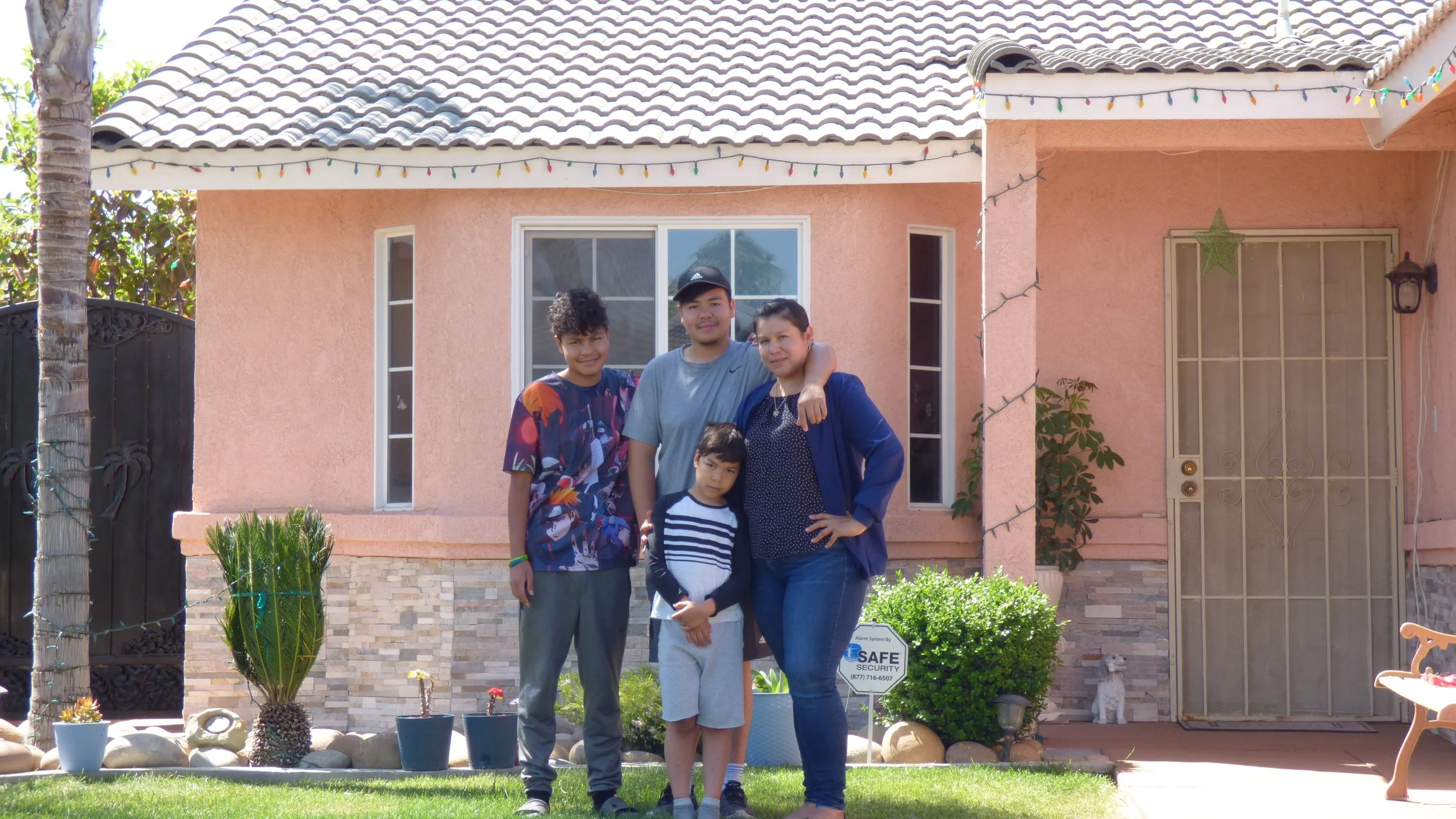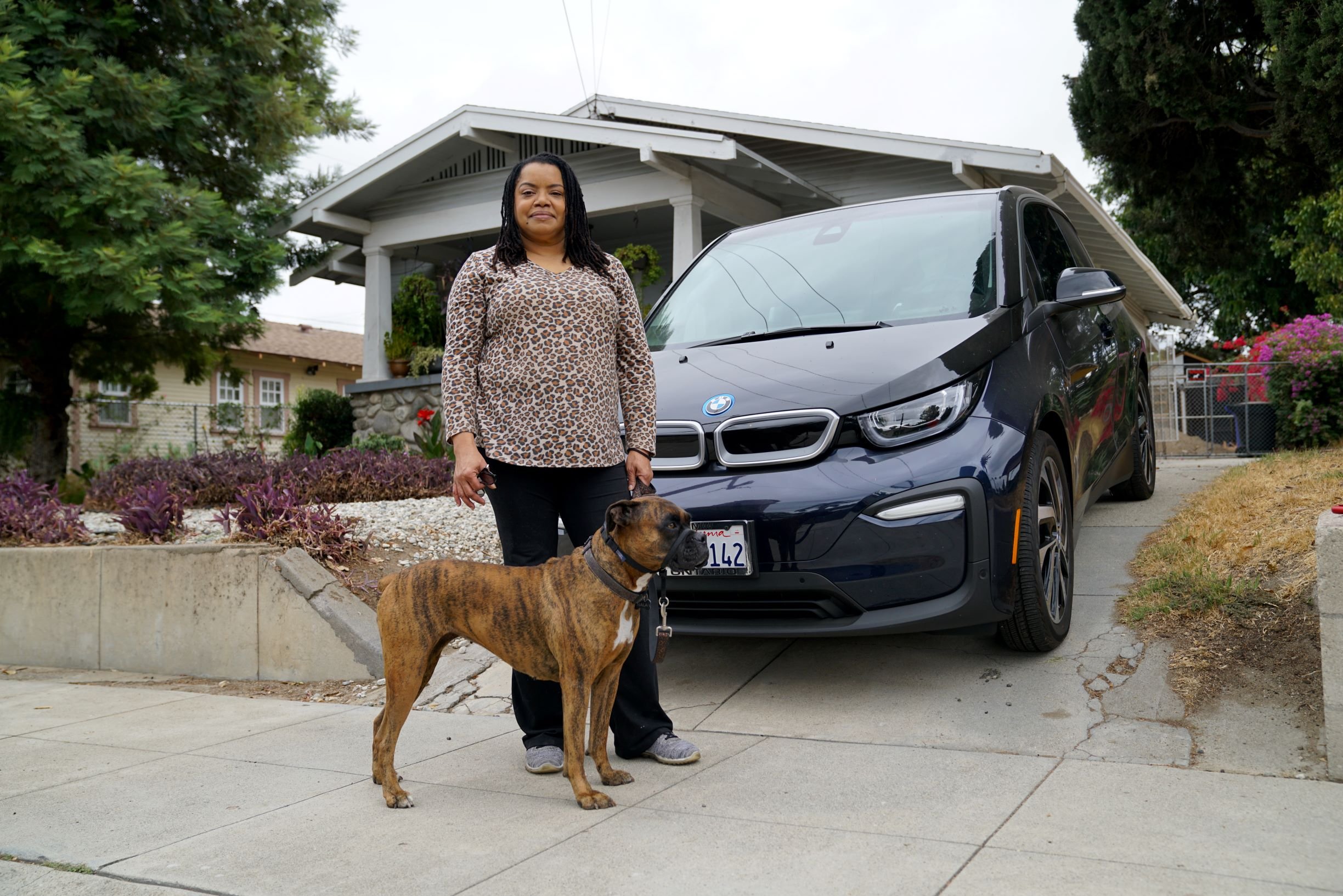In 2019, the California Energy Commission awarded Pacific Coast Producers (PCP), the largest tomato canning facility in the country, a $5,721,713 grant from the Food Production Investment Program (FPIP) under the state’s California Climate Investments program to install an advanced energy-efficiency evaporation technology at PCP’s Woodland facility. The grant was supplemented by $3,080,923 in match funding from PCP.
Saving Quality Wood Products from Landfills with Habitat for Humanity
The California Department of Resources Recycling and Recovery (CalRecycle) awarded $488,635 of California Climate Investment funds to Habitat for Humanity East Bay/Silicon Valley, Inc. as part of the first cycle of the Reuse Grant Program. This project is diverting wood products from landfills to their ReStore retail stores for reuse by the community. Habitat for Humanity East Bay/Silicon Valley, Inc. is a nonprofit, donation-based collection, and resale operation with three sites in Oakland, Concord, and San Jose, serving the San Francisco Bay Area.
California Conservation Corps Supporting San Bernardino Mountains Restoration
The California Conservation Corps (CCC), in collaboration with CAL FIRE, American Forests, and the Mojave Desert Resource Conservation District, helped plant 70,000 seedlings in the San Bernardino Mountains. Supported by $200,000 in California Climate Investments funding, the project’s goal was to re-plant an area in and around the Eaton Scout Reservation in Cedar Glen. The project is the result of interagency coordination and collaboration and helped invest in Corpsmembers from underserved areas by providing information about tree planting and reforestation and providing them with experience in the mountains to help cultivate interests in forest health.
First of Its Kind Fuel Cell Project Generating Electricity from Dairy Waste
California Department of Food and Agriculture
Thanks to $3 million in funding from the Dairy Digester Research and Development Program (DDRDP), a California Bioenergy dairy digester and Bloom Energy fuel cell technology have been installed at the Bar 20 Dairy in Fresno County and are now capturing methane and generating renewable electricity without combustion. This innovative project was made possible through state incentive programs and private investors including the DDRDP administered by the California Department of Food and Agriculture, and the Self Generation Incentive Program, administered by the California Public Utilities Commission, and access to revenue generated by California’s Low Carbon Fuel Standard (LCFS) credit.
Energy Upgrades for Farmworker Household Brings Safety, Comfort, and $3.00 Energy Bills
Thanks to funding from California Climate Investments through the Low-Income Weatherization Program (LIWP), Rocio Hernandez and her family reduced their home energy costs by installing a new rooftop solar system and energy efficiency upgrades. At first, Mrs. Hernandez thought the referral flyer her husband brought home after work as a seasonal farmworker during the grape harvest in Delano was too good to be true. A local farmworker agency provided information about the LIWP Farmworker Housing Component, a California Climate Investment program focusing exclusively on the installation of energy efficiency measures and solar photovoltaics (PV) to reduce greenhouse gas emissions for farmworker households at no cost.
Community-focused outreach project, Access Clean CA, helped resident in underserved community afford electric vehicle and solar panels.
Expanding Metrolink Service in Southern California
Fuel Cell Electric Trucks Reduce Air Pollution Throughout the Central Valley
California Air Resources Board
Thanks to $12 million from the Advanced Technology Demonstration and Pilot Projects and $29 million in match funding from multiple project partners, the NorCAL Zero-Emission Regional and Drayage Operations with Fuel Cell Electric Trucks (NorCAL Zero) Project will support the largest commercial deployment of Class 8 hydrogen-powered fuel cell trucks in the country. These zero-emission trucks will improve the air quality of communities between Oakland and Bakersfield by displacing diesel-fueled trucks that emit harmful air pollutants.
New Equipment on a Turlock Dairy Farm Reduces Greenhouse Gas Emissions and Produces Co-Benefits
California Department of Food and Agriculture
Supported by a $565,470 grant from the California Department of Food and Agriculture’s Alternative Manure Management Program, Paul Danbom of Brindeiro & Danbom Dairy Farms in Turlock took a significant step towards improving the efficiency of his dairy operation and installed a new solid separation system. Instead of flushed manure being discharged directly into a settling pond and storage lagoon system, it is now pumped through a separator capable of capturing a large portion of manure solids, keeping that organic material from entering and decomposing in a liquid environment where it would produce methane.
Supporting Adaptation and Resilience Planning in the City of Morro Bay
Using a $65,000 grant awarded under the Coastal Resilience Planning program, the City of Morro Bay engaged with its community to update the City’s Land Use Plan, the first step to updating its Local Coastal Program to include updated adaptation strategies and land use policies that will protect coastal infrastructure and provide resilience to future coastal hazards.
Building the Capacity of a Food Rescue and Distribution Network in Fresno
California Department of Resources Recycling and Recovery
The non-profit Fresno Metropolitan Ministry (Fresno Metro), in partnership with the Central California Food Bank, is using a $300,000 grant from the Food Waste Prevention and Rescue Grant Program to expand their capacity to rescue and distribute more edible food through their Food to Share program. Over the grant term, Fresno Metro will add 20 new food recovery school sites from Fresno Unified and Central Unified School Districts, set up 5 new food distribution sites at local community-based organizations, and increase direct food recoveries by adding 2 new retail locations and 6 urban gleaning sites.
Studying the Public Health Effects of Increased Prescribed Burns for Wildfire Management
California Department of Forestry and Fire Protection
Supported by a $500,000 grant from the Forest Health Research Program, the Sequoia Foundation, in partnership with the California Department of Public Health and others, is investigating the impacts of increasing prescribed fire on air quality and public health outcomes. Although prescribed fire plans are designed to limit air quality impacts to communities, they still produce some level of smoke. In this project, this interdisciplinary team will collect information that can help minimize the impacts of this smoke through a combination of smoke modeling, exposure assessment, health analysis, and community engagement.
Providing Clean Drinking Water to an Elementary School in Manteca
California State Water Resources Control Board
Thanks in part to a $21,253 technical assistance grant from the State Water Resources Control Board’s Safe and Affordable Drinking Water Fund, the City of Manteca will be able to provide safe water for Nile Garden Elementary School by consolidating the school into the City of Manteca’s public water system.
Kompogas SLO Inc. is Creating Fuel and Compost with Waste
Kompogas SLO Inc. received $3 million through the Organics Grants program to build a high-solids anaerobic digester, to be known as the Lancaster Organic Waste Facility, at the existing Lancaster Landfill and Recycling Center in Antelope Valley. With this new anaerobic digester, Kompogas SLO Inc. will be able to process residential food and green waste collected by Waste Management Inc. throughout Antelope Valley, including in the cities of Lancaster and Palmdale, and turn it into renewable natural gas and high-grade compost.
Supporting Farmers and Rancher’s Access to Grant Funding
Supported by $3.57 million from the Greenhouse Gas Reduction Fund, the California Department of Food and Agriculture’s Climate Smart Agriculture initiative provides technical assistance to help farmers find funding and implement projects that support their work while helping to achieve the State’s climate goals. These funds, which were leveraged by California Department of Food and Agriculture and the Strategic Growth Council, support 10 Community Education Specialists, a group of technical experts with the University of California Division of Agriculture and Natural Resources. Since 2019, these Community Education Specialists have assisted over 850 farmers and ranchers across the State with applications to programs under the Climate Smart Agriculture initiative.
Woodstove Replacements Heat Homes in Butte County
More than 54 Butte County households have replaced their old woodstove or stove insert with a new, cleaner alternative that heats their home, improves indoor air quality, and reduces emissions of greenhouse gases, harmful particulates, and black carbon, a particularly potent climate pollutant, thanks to vouchers provided by the Woodsmoke Reduction Program. Among the residents who have benefitted from the program are Dennis and Deb, who replaced their 1979 woodstove insert, and Riki, who replaced the woodstove that came with their farmhouse, built before 1900.
Community Outreach and Education through the Clean Air Ambassador Program
Supported by $2.4 million from a $23 million Transformative Climate Communities implementation grant, a coalition of community members, non-profits, and public-sector agencies called Green Together, is working to build a new generation of air quality ambassadors in the Pacoima and Sun Valley communities of the San Fernando Valley. The Clean Air Ambassadors Program, established as part of the Green Together Community Engagement Plan, trains community youth organizers through workshops covering air quality monitoring, health, climate change and air pollution. Through the program, ambassadors learn how to collect and interpret data using scientific tools to measure local particulate matter pollution. Ambassadors also learn how to communicate air pollution principles and advocate for data-informed clean air solutions. In 2021, the Clean Air Ambassadors Program hosted its inaugural class of youth leaders.
A Multi-Faceted Approach to Addressing Community-Identified Transportation Needs
The Sustainable Transportation Equity Project (STEP) is designed to increase transportation equity in disadvantaged and low-income communities by funding planning and clean transportation projects and directly engaging community residents in clean transportation solutions. STEP achieves this via two grant types: Implementation Grants and Planning and Capacity Building Grants. Paid for by Cap-and-Trade dollars, the grants ultimately will help people get where they need to go — be it the doctor’s office or daycare — without using a personal vehicle.
Partnership Helps Protect San Diego County Forests
The Resource Conservation District of Greater San Diego County (RCD) is using their $1.4 million grant awarded in 2019 from the Regional Forest and Fire Capacity program to develop the region’s capacity to restore the health of its forests and protect them from severe wildfires in the future. To carry out this work, the RCD has partnered with several California Native American Tribes, the Cleveland National Forest, a private cattle company, and the Palomar Observatory to manage the region, which includes the last mixed conifer forest in San Diego County. The RCD is also developing training programs for several Fire Safe Councils in San Diego County serving 46 communities, so they can support this work.
Supporting Energy Efficiency and Clean Energy Generation in Multi-Family Farmworker Housing
People’s Self-Help Housing was awarded over $630,000 from the Low-Income Weatherization Program’s Multi‑Family Energy Efficiency and Renewables program to invest in the health and well-being of its low-income farmworker community in Santa Maria, known as Los Adobes de Maria. The homes of the 65 farmworker families living in Los Adobes de Maria will receive energy efficiency upgrades that will reduce energy consumption and lower their bills.



















